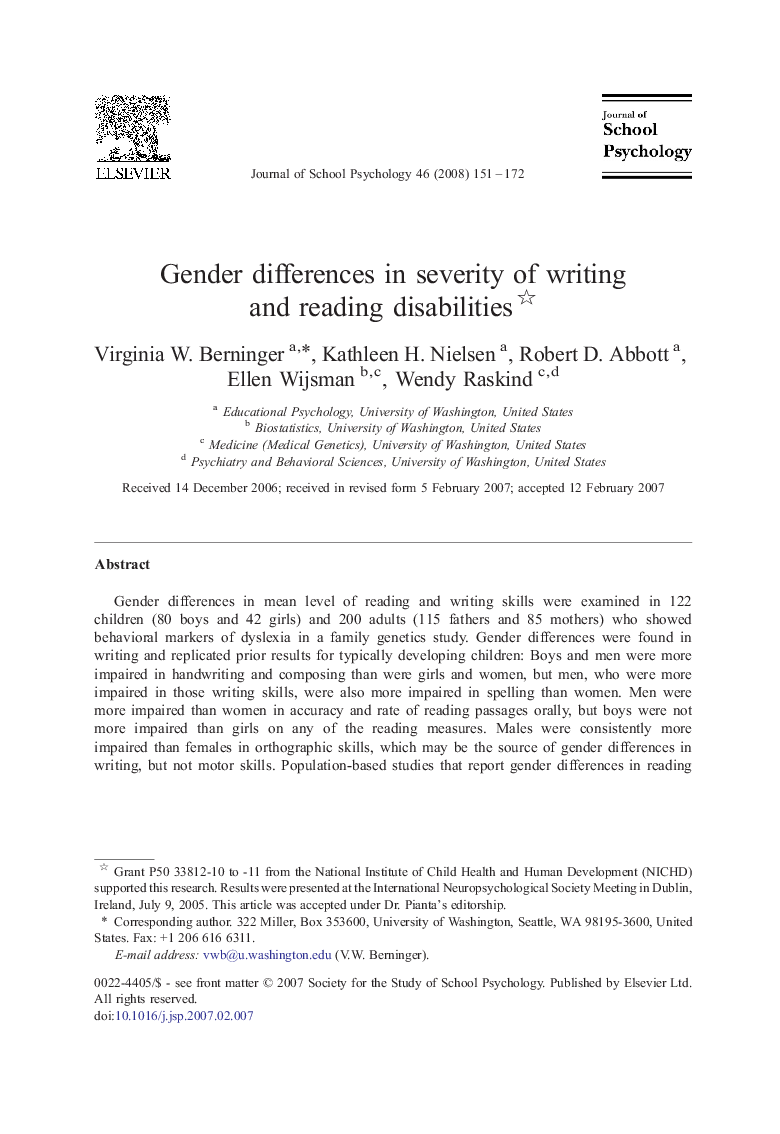| Article ID | Journal | Published Year | Pages | File Type |
|---|---|---|---|---|
| 363786 | Journal of School Psychology | 2008 | 22 Pages |
Gender differences in mean level of reading and writing skills were examined in 122 children (80 boys and 42 girls) and 200 adults (115 fathers and 85 mothers) who showed behavioral markers of dyslexia in a family genetics study. Gender differences were found in writing and replicated prior results for typically developing children: Boys and men were more impaired in handwriting and composing than were girls and women, but men, who were more impaired in those writing skills, were also more impaired in spelling than women. Men were more impaired than women in accuracy and rate of reading passages orally, but boys were not more impaired than girls on any of the reading measures. Males were consistently more impaired than females in orthographic skills, which may be the source of gender differences in writing, but not motor skills. Population-based studies that report gender differences in reading in children with dyslexia may be confounding reading and writing disorders—the latter being the true source of gender differences in both children and adults with dyslexia.
